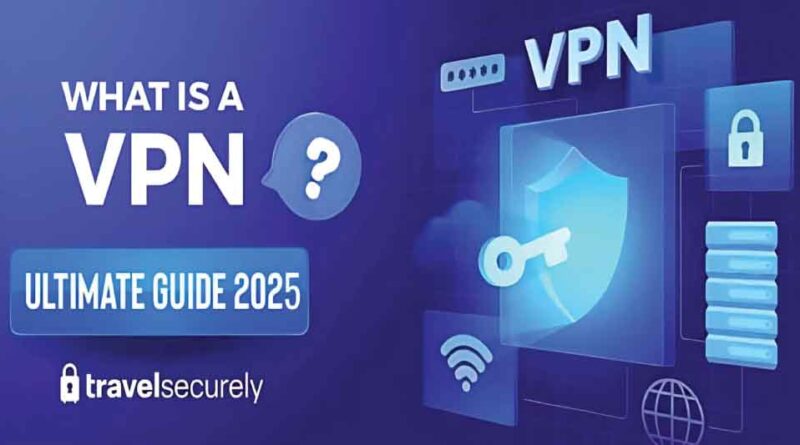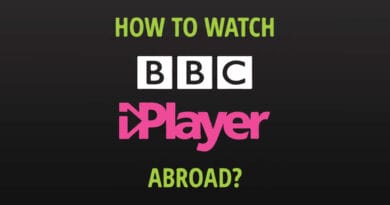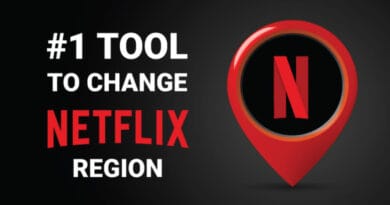Ultimate VPN Guide: Everything
Ultimate VPN Guide: Everything You Need to Know in 2025
1. Introduction: What Is a VPN and Why It Matters
Ever wondered what a VPN is? A Virtual Private Network (VPN) encrypts your internet connection and hides your IP address. In plain terms, it’s your digital shield—ideal for protecting privacy, accessing geo-restricted content, and securing public Wi-Fi usage. With censorship on the rise and streaming services tightening regional libraries, VPNs are now more essential than ever.
2. Why Use a VPN?
Privacy and Security
A good no-logs VPN ensures that your online activities are not recorded—privacy first and foremost. Whether you’re on public Wi-Fi in Karachi or Islamabad, a VPN keeps your traffic encrypted and untraceable.
Bypassing Geo Restrictions
Streaming fans often choose a streaming VPN to unlock Netflix US, BBC iPlayer, or Disney+ content easily. Similarly, people living in restrictive countries rely on VPN services to access blocked sites—censorship-proofing your online freedom is a major benefit.
Remote Access & Business Use
VPNs also support secure remote access for corporate or personal use. Workers use VPN tunnels to connect safely from anywhere.
3. How VPNs Work (Technical Overview)
At its core, a VPN operates using encrypted tunneling protocols like Open VPN, IKEv2, and Wire Guard, all using strong AES-256 encryption (Wikipedia). Some providers now include a Stealth protocol that disguises VPN traffic to bypass censorship in places like China or Iran (Tom’s Guide).
4. How VPNs Bypass Censorship
In countries with strict internet control, VPNs offering obfuscation features—such as Stealth VPN, Shadow socks, or custom stealth protocols—are critical. Providers like Astrill, Windscribe, and Hide.me have proven reliable in high restriction environments.
5. Free vs Paid VPNs: A Comparison Table
| Feature | Free VPN (e.g. Proton VPN Free, Windscribe Free) | Paid VPN (e.g. NordVPN, Surfshark) |
|---|---|---|
| Data Cap | Unlimited (throttled) or limited (10–15 GB) | Unlimited, blazing speed |
| Server Locations | Limited (3–5 countries) | Worldwide coverage in 110+ countries |
| Streaming Support | Often blocked, minimal support | Fully support Netflix, Prime, iPlayer |
| Leak Protection | Basic, sometimes vulnerable to leaks | Built-in WebRTC, IPv6, DNS leak protection, kill switch |
| No Logs / Audited Policy | Yes (Swiss jurisdiction for Proton) | Yes, often regularly audited |
| Simultaneous Connections | Usually one | Multiple (up to 10 devices) |
| Advanced Features | Minimal | Split tunneling, ad & malware blocker, secure core, crypto payments |
Example: Proton VPN Free offers unlimited data and strong privacy but throttles speed after ~1 GB and doesn’t support streaming or split tunneling. Privado VPN Free gives up to 10 GB and streaming support, but still under restrictions.
6. Key Features to Compare When Choosing a VPN
• No-logs policy and independent audits
• Encryption protocols: Open VPN, Wire Guard, IKEv2, Stealth
• Leak protection: WebRTC, IPv6, DNS
• Speed & server network
• Streaming and torrenting support
• Payment options including crypto
• Jurisdiction: e.g. Switzerland (Proton VPN)
7. Use Case Scenarios
• Streaming VPN users: Access Netflix, Disney+, BBC iPlayer—best served by NordVPN or Surfshark
• Censored regions: Astrill, Hide.me, Private VPN, Windscribe Free
• Privacy-first users: Proton VPN (free or paid), Privado VPN Free
• Casual/light users: Free plans for occasional access
8. VPNs in Focus: Notable Providers
-
Proton VPN Free: Unlimited data, no logs, Swiss-based. Limited streaming.
-
PrivadoVPN Free: Fast (up to 950 Mbps), 10 GB/month, supports streaming/torrenting
-
Windscribe Free: 10–15 GB, strong privacy tools, good speed
-
NordVPN & Surfshark: Premium, fast, ad/malware blocking, unlimited devices
9. VPN and WebRTC / IP Leak Protection
WebRTC leaks can expose your real IP even with a VPN active due to browser peer-to-peer APIs. Best-practice VPNs offer WebRTC leak protection. Alternatively, disable WebRTC via browser settings or use extensions like uBlock Origin. But modern VPNs already include this protection.
Useful tools:
• ipleak.net
• dnsleaktest.com
• BrowserLeaks
10. VPN Compliance & Jurisdiction
Where a VPN is based matters. Swiss-based providers like Proton VPN and PrivadoVPN operate under strict privacy laws. Jurisdictions with mandatory data retention laws can be risky. Look for VPNs with transparency reports and verified no-logs policies.
11. Setup Guides by Device
No matter your device:
• Download the app from the provider’s site
• Log in and connect to a server
• Enable kill switch and leak protection
• Choose protocol (WireGuard for speed, Stealth for censorship)
Most apps offer step-by-step instructions.
12. Troubleshooting Common VPN Issues
• VPN not connecting? Switch servers or enable Stealth mode
• Slow speeds? Free VPNs throttle—upgrade to paid
• Streaming blocked? Use streaming-optimized servers (NordVPN/Surfshark)
• Leaks detected? Test via ipleak.net or dnsleaktest.com
13. Frequently Asked Questions (FAQs)
Is it legal to use a VPN everywhere?
Not always. Countries like China, UAE, and Iran have restrictions. Use stealth protocols.
Are free VPNs safe?
Only reputable ones like Proton VPN Free or PrivadoVPN Free. Avoid unknown apps.
Can VPNs slow down my internet?
Yes, especially free ones. Paid VPNs like NordVPN deliver high speeds (800 Mbps+).
What VPN protocol is best?
WireGuard for speed, OpenVPN/IKEv2 for compatibility, Stealth for censorship bypass.
14. Final Verdict & Recommendations
• Best VPN for streaming: NordVPN or Surfshark
• Best free VPN for privacy: Proton VPN Free
• Best free VPN with streaming/torrenting: PrivadoVPN Free or Windscribe Free
• Best for censorship: Astrill, Windscribe (Stealth), Hide.me, Private VPN



